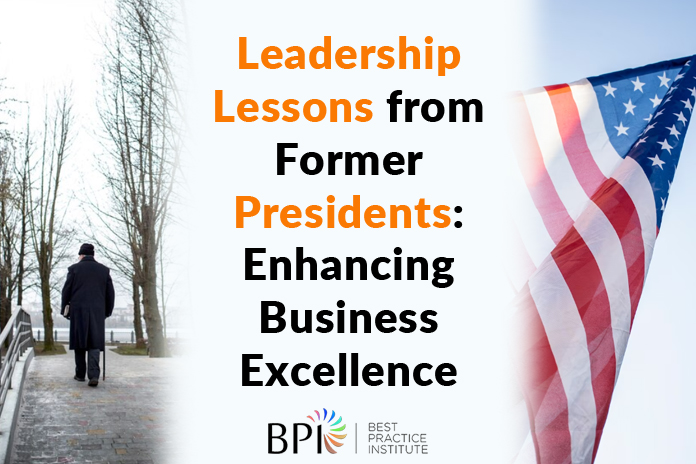As we approach President’s Day, it’s an ideal moment to delve into the remarkable leadership qualities exhibited by past U.S. presidents and their implications for driving excellence in business leadership. Throughout history, these leaders faced monumental challenges and left enduring legacies that offer valuable insights for today’s business leaders. Let’s explore the key lessons we can glean from their exemplary leadership:
1. Adaptable Leadership:
Abraham Lincoln’s adaptability in navigating complex challenges is a critical lesson for today’s leaders. Embracing change and empowering teams to innovate enables organizations to thrive in dynamic environments.
2. Strategic Decision-Making:
George Washington’s strategic decision-making during pivotal moments in history underscores its importance in driving organizational success. Informed decision-making aligns with organizational goals and maximizes stakeholder value.
3. Empathy and Compassion:
George W. Bush’s display of empathy and compassion in times of crisis highlights the role of leaders in fostering a culture of trust and collaboration. Prioritizing empathy creates inclusive work environments where individuals feel valued and motivated to contribute their best.
4. Innovative Thinking:
Thomas Jefferson’s commitment to innovation and progress is a valuable lesson for today’s business leaders. Embracing innovation and encouraging creativity enables leaders to drive growth and maintain a competitive edge in a rapidly evolving landscape.
5. Integrity and Character:

Ronald Reagan’s unwavering integrity exemplifies the importance of ethical leadership in guiding organizations through challenges. Upholding the highest standards of integrity and ethics fosters trust and drives sustainable success.
6. Effective Communication:
Theodore Roosevelt’s mastery of effective communication demonstrates its power in mobilizing support and aligning teams towards shared goals. Effective communication fosters organizational transparency, clarity, and alignment, driving collaboration and achieving objectives.
7. Resilience in Adversity:
Franklin D. Roosevelt’s resilience during the Great Depression and World War II underscores the importance of navigating challenges with unwavering resolve. Embracing setbacks as opportunities for learning enables leaders to inspire confidence and foster organizational resilience in times of uncertainty.
8. Vision and Conviction:
John F. Kennedy’s bold vision for space exploration serves as a powerful example of articulating a compelling vision and staying committed despite obstacles. In business, leaders must inspire trust and rally their teams toward a common goal by demonstrating unwavering conviction and determination.
As we honor the legacy of former presidents this Presidents Day, let’s reflect on the invaluable leadership lessons they impart. By embracing vision, resilience, empathy, innovation, integrity, communication, strategic decision-making, and adaptability, leaders can inspire positive change and drive excellence in business. Now is the time to assess and enhance your leadership skills. Take Louis Carter’s Leadership Assessment Survey today and embark on your journey toward becoming an exceptional leader.










